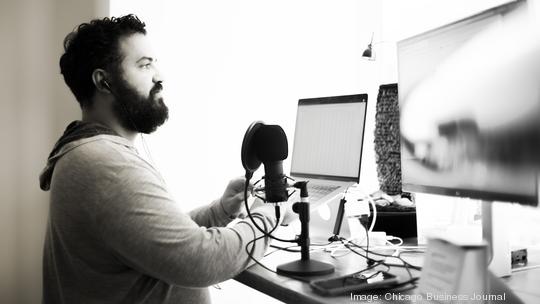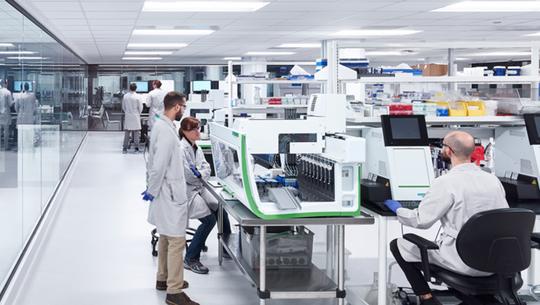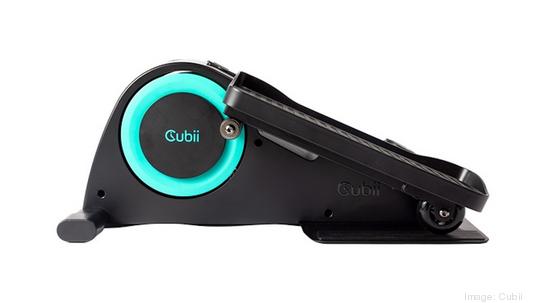
2020 was a year unlike any other.
The year was defined by the ongoing coronavirus pandemic, which resulted in hardships for many of the city's tech businesses. But the pandemic also propelled local startups to new heights, and brought new innovation and growth to others. Summer protests around police violence caused workplaces to openly discuss racism and bias with their employees. And major news around quantum technologies position Chicago to be a leader in super-fast computing.
Here are the stories that defined Chicago tech in 2020.
Covid rocks Chicago's tech economy
The coronavirus pandemic sent shockwaves across the city's tech scene, initially resulting in layoffs from numerous Chicago startups and tech companies. Groupon, SpotHero, Remote Year, Hireology, G2, Gogo and Cars.com were among the local companies to cut staff due to the pandemic. Large tech companies like Uber, Yelp and Glassdoor also reduced headcounts in their Chicago offices.
Travel, hospitality and events companies were hit especially hard. SpotHero, which went through two rounds of cuts in 2020, said the parking industry saw parking volume losses up to 90% in March as much of the country shut down. PartySlate, a platform for events professionals, had to pivot to remote events and trim $1 million in expenses to extend its runway. Brideside, a startup that sold wedding apparel, shut down in November.
But the pandemic wasn't doom and gloom for the entire Chicago tech scene. In fact, some companies experienced record growth. Cameo, a startup that lets fans request video messages from celebrities, skyrocketed in 2020 after users flocked to the platform to send virtual messages to loved ones, and celebs joined in record numbers to connect with fans and recoup lost revenue from canceled shows and tours. Food startups also boomed in 2020, with companies like Tovala and Home Chef taking advantage of increased demand this year. Prepared meal startup Factor75 was sold to HelloFresh for $277 million, and Asian food delivery startup Chowbus raised more than $60 million over the span of three months as the pandemic brought more users to its platform. Tock, an online reservation platform for restaurants, spun up a pickup and delivery service in a matter of days to help restaurants struggling from the pandemic, and it raised $10 million in May.
The pandemic has also ushered in the remote work revolution in Chicago and cities across the country. Local tech companies have canceled office leases, offered four-day workweeks and transitioned to fully remote and distributed teams as the virus changes the way companies think about their physical office space.

George Floyd's death sparks calls for change among city's tech leaders
The death of George Floyd, Breonna Taylor and other unarmed Black people at the hands of police reignited the conversation in America around systemic racism and social injustice, and how it bleeds into every fiber of America, including the workplace. The tech industry has long battled a reputation for its lack of diversity and inclusion, and despite a decade-high in VC funding in Chicago last year, very little of that money made its way to Black founders. Chicago Inno reported this year that Chicago has just nine active Black-founded startups that have raised more than $1 million in total funding.
“If you talk to any Black founder in this ecosystem or comparable ecosystem, you’re going to get stories of blatantly racist treatment," Ablorde Ashigbi, the co-founder and CEO of Chicago startup 4Degrees, said earlier this year.
2020's summer of protests against racism and police violence led to increased conversations about how businesses talk about issues of structural racism and bias, and how companies can make the workplace more diverse and equitable for all employees.
Grubhub sold after Uber acquisition talks fizzle
After it appeared Uber was on the verge of acquiring Chicago food delivery company Grubhub, European delivery giant Just Eat Takeaway.com swooped in and acquired Grubhub in a $7.3 billion deal. The acquisition, which took place in July, came after several U.S. senators sent a letter to antitrust officials urging scrutiny of a possible Uber/Grubhub deal.
The deal allowed Just Eat to enter the U.S. market and created the largest online food delivery company outside of China, the company said. Matt Maloney, Grubhub's CEO and founder, is leading the combined company's businesses across North America. Maloney said the pandemic is a "permanent catalyst" to the company's future growth.
Tempus raises more, keeps status as Chicago's most valuable startup
Chicago startup Tempus raised a total of $300 million in 2020 over two rounds, including a $200 million Series G-2 financing round it raised in December. The tech company, which uses machine learning and genomic sequencing to better understand cancer tumors, has now raised $1.05 billion and has a post-money valuation of $8.1 billion, making it Chicago's most valuable tech startup.
Founded in 2015 by Groupon co-founder Eric Lefkofsky, Tempus is using the funds to expand beyond cancer care and into areas like infections disease, starting with Covid-19. As of November, Tempus was performing upwards of 12,000 coronavirus tests per day, and it is collaborating with the Yale School of Public Health to develop an at-home, saliva-based Covid-19 diagnostic test. Tempus now employs about 1,500 people.

Livongo acquired in mega health-tech deal
Livongo Health, a health care tech company founded by Chicago entrepreneur Glen Tullman, was acquired in August by New York telemedicine company Teladoc Health in an $18.5 billion deal. Founded in 2014, Livongo makes a blood glucose monitor and digital dashboard to help people manage diabetes and other chronic health conditions. The combined company is expected to do $1.3 billion in revenue this year, the companies said at the time of the deal.
Walgreens invests in VillageMD to open care clinics
Walgreens agreed to invest $1 billion over three years in Chicago startup VillageMD in an effort to become the first national pharmacy chain to offer primary care clinics. The investment, which comes in equity and convertible debt, includes a $250 million equity investment in VillageMD that was completed in July. Walgreens said it plans to open between 500 and 700 “Village Medical at Walgreens” primary care clinics in more than 30 U.S. cities over the next five years, and build "hundreds more" after that.
Chicago's quantum leap
Two labs in the Chicago area, Argonne and Fermilab, were picked this year to lead national research centers for quantum computing, which could propel the city into a leader in the next era of computing. The two labs were chosen by the Department of Energy and are among five facilities that will receive $115 million each over the next five years. With Chicago home to two of the five projects, it could make the city a leader in quantum computing for years to come.
Cubii lands $100M deal
Gridiron Capital, a private equity firm, bought a controlling stake in Fitness Cubed, the maker of Cubii, in a deal reportedly worth about $100 million. The startup raised around $1 million in seed funding from investors such as HealthBox, 1871 CEO Howard Tullman and Fieldglass founder Jai Shekhawat. The deal was a major outcome for the Chicago startup, which saw increased demand for its under-desk elliptical training devices during the Covid pandemic. The company sold its 500,000th device this year.

Outcome Health founders' fraud trial set
A trial date of Feb. 22, 2022 was set for Rishi Shah, Shradha Agarwal and other Outcome Health executives who are accused of running a scheme that allegedly defrauded investors out of hundreds of million of dollars. Shah and Agarwal were charged in federal court last year with a combined 26 counts of fraud. Prosecutors say Outcome, which operates digital tablets in doctors' offices and waiting rooms that display healthcare content and advertising, allegedly over-billed companies for ads that were never delivered and falsified revenue figures in an effort to raise nearly a billion dollars in loans and equity investments.
Shah and Agarwal face up to 30 years in prison if convicted, and both have pleaded not guilty.



